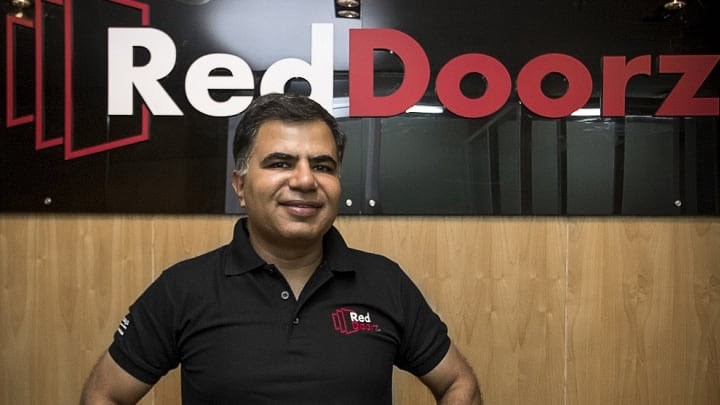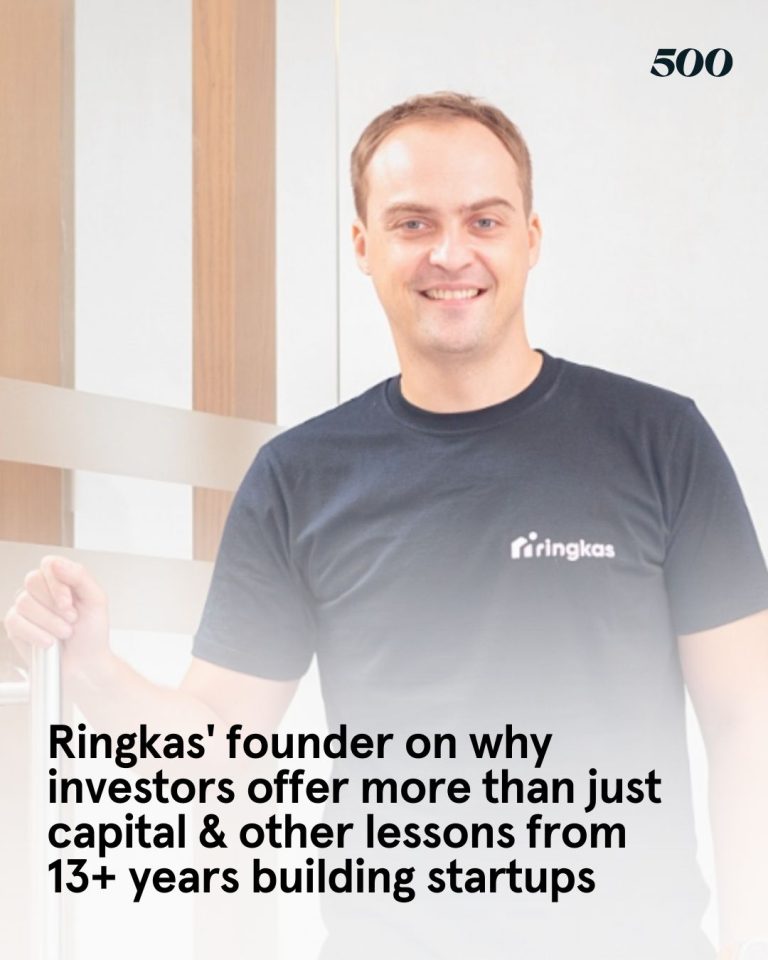
Sporting a new look
- 500-backed Carsome announced the launching of a business-to-consumer (B2C) segment, offering a differentiated experience of buying used cars, in conjunction with the opening of its new flagship store, the Carsome Experience Center in Kuala Lumpur.
- The initiative provides consumers with a highly digitized and transparent car-purchasing process, aiming to solve the lack of trust in buying used cars.

- “We want to create an end-to-end trusted experience for consumers when it comes to buying used cars,” said Carsome co-founder and CEO Eric Cheng.
- “Our Car Purchase Preference Survey showed that 70 percent of car buyers want detailed information on car condition; 60 percent appreciate an extended warranty; and 40 percent value test drive experience and money-back guarantee.”
- The Carsome Promise offers a one-year warranty and a five-day money-back guarantee on selected vehicles. The service also features a home-delivery option. Test drives take place in a controlled setting from the Experience Centre after consumers pre-book their desired vehicles online.
- “Carsome’s B2B business has solved a persistent issue for used-car dealers when it comes to sourcing inventory,” said Cheng.

- “With the launch of our B2C segment, we are now creating a new customer-acquisition channel for our partner dealers to remarket and sell more cars through our extensive marketing reach. This is an exclusive, value-added service to our partner dealers, who can now list their cars on Carsome website for free.”
- In conjunction with the new launch, the company has introduced its new brand identity, featuring a new logo.
- More on Carsome’s latest initiative here.
The digital frontier
- The pandemic has accelerated digital adoption in Pakistan, said Furquan Kidwai, CEO and founder of 500-backed Dawaai.
- In an interview with BR Research, Furquan described the Covid-19 crisis as the catalyst to the nation’s digital acceleration, contributing to the growth of online brands, including Dawaai.
- “Without doubt, though, the circumstances have leapfrogged the digital space in Pakistan by a good 9 to 12 months, especially in terms of user acceptability of e-commerce. Dawaai itself saw a growth of about 3 to 4x within the span of a few weeks. The looming question now is whether Pakistan can sustain this growth and create value for the economy,” he said.

- Since the breakout, Dawaai has been implementing different strategies to cope with rising demand.
- “On the supply-side, our team at Dawaai focused on ensuring inventory, minimizing disruptions in our supply. To cater to the increasing demand, we have expanded our operations, and our team, to better cater to market needs and fulfill the rising number of orders,” Furquan revealed.
- “We have also launched many new, needed services like 2-hour delivery through Dawaai FAST, provided access to free mental healthcare for our users, developed a guide on homecare for Covid-19 patients, to name a few.”
- Dawaai primarily operates as an online pharmacy targeting both the B2B (retail pharmacies, medical stores and businesses) and the B2C segments across the country.
- Furquan had said in April that efficiently segregating orders across their seven warehouses in the country and distributing them through logistic partners has helped to streamline the supply chain and ensure the authenticity of goods sold through the platform.
- Read the full interview here.
A new age
- Quick decision making has allowed RedDoorz to “dodge a bullet” amidst the Covid-19 pandemic, said Amit Saberwal, founder and CEO of the 500-backed hotel management platform.
- In fact, the company reinstated salary cuts in July, something it promised to do if targets were met.
- “We said the salary cuts would be till December but these are the targets and if you achieve the targets, we will reverse the cuts, so the team really rolled up their sleeves and worked really hard. They met the targets, so we have reversed the cuts,” Amit said.
- RedDoorz is now in a positive recovery stage. Amit attributes the rise to assistance from local governments and the easing of social distancing measures, which allowed domestic traveling.

- On RedDoorz’s part in responding to the crisis, it introduced the Hygiene Pass, a collaboration with the Indonesian Public Health Expert Association (IAKMI).
- The aim is to create hygiene and sanitation standardization for the industry as preventive measures during the Covid-19 pandemic. The program also aims to boost travelers’ confidence in hotels.
- What does the future hold for travel companies like RedDoorz?
- Amit believes the post-pandemic setting will usher in a new breed of travel companies. Companies with the potential of going public.
- “The good companies that will emerge will go on to become your unicorns and you’re going to have a lot more activity in the public market for these companies. Some of these companies should have gone public a few years ago but the private market was more profitable, but that has changed,” Amit told WIT.
- For more on Amit’s interview, in which he speaks in detail on the steps RedDoorz took for survival, go here.
Missed out the last Daily Markup? Go here to check it out.
You can also find us on LinkedIn, Facebook, Twitter, and Instagram.

500 Startups is a venture capital firm on a mission to discover and back the world’s most talented entrepreneurs, help them create successful companies at scale, and build thriving global ecosystems. In Southeast Asia, 500 Startups invests through the pioneering 500 Southeast Asia family of funds. The 500 Southeast Asia funds have backed over 240 companies across multiple sectors from internet to consumer to deep technology. It continues to connect founders with capital, expertise and powerful regional and global networks to help them succeed.
This post is intended solely for general informational or educational purposes only. 500 Startups Management Company, L.L.C. and its affiliates (collectively “500 Startups”) makes no representation as to the accuracy or information in this post and while reasonable steps have been taken to ensure that the information herein is accurate and up-to-date, no liability can be accepted for any error or omissions. All third party links in this post have not been independently verified by 500 Startups and the inclusion of such links should not be interpreted as an endorsement or confirmation of the content within. Information about portfolio companies’ markets, competitors, performance, and fundraising has been provided by those companies’ founders and has not been independently verified. Under no circumstances should any content in this post be construed as investment, legal, tax or accounting advice by 500 Startups, or an offer to provide any investment advisory service with regard to securities by 500 Startups. No content or information in this post should be construed as an offer to sell or solicitation of interest to purchase any securities advised by 500 Startups. Prospective investors considering an investment into any 500 Startups fund should not consider or construe this content as fund marketing material. The views expressed herein are as at the date of this post and are subject to change without notice. One or more 500 Startups fund may have a financial interest in one or more of the companies discussed.




